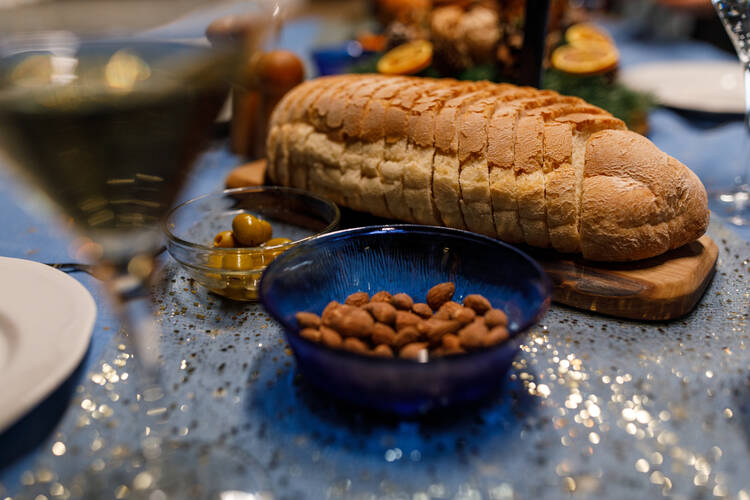Politics isn’t the only place where polarization is rampant and worsening by the day. The Catholic Church is increasingly divided, too. The growing chasm threatens to split the institution that calls itself the one true church. In the same way that Americans must rediscover how to disagree without being disagreeable, Catholics must relearn how to look beyond our differences.
The place to start, I think, is somewhere simple—by sitting down and speaking with each other.
Over the past year, my wife and I have convened four such gatherings at our Manhattan apartment, with more than 40 prominent Catholics from across the ideological and theological spectrum. Most of us do not otherwise interact. At best, we run into each other at Catholic events. At worst, we snipe at each other, not only in private but also in public, perhaps through speeches, aligned Catholic media outlets and social media.
On a superficial level, the guests reflect America’s political divide. Words like conservative and liberal don’t quite fit in a Catholic context, but we are often at odds over whether and how much the church should accommodate itself to modern culture, including whether core Catholic teachings should—or even can—be changed. Think of the differences between people like Sohrab Ahmari, the Catholic convert and journalist who warns against modern cultural excess, and James Martin, the Jesuit priest and America editor who has said Catholics can celebrate “Pride Month.”
Our differences are especially apparent on matters of sexual ethics and morality. Those who advocate dramatic change tend to support what happened in Germany last year when the country’s bishops endorsed blessings for divorced Catholics and same-sex couples while calling for the ordination of women and the end of priestly celibacy. In December 2023, Pope Francis seemed to endorse blessings for same-sex couples, though he has since clarified that he does not support them. He has steadfastly refused to weaken church policy on ordinations and celibacy.
To be clear, on many such issues there cannot be compromise. Irreconcilable understandings of right and wrong are at play. But the impossibility of compromise does not render conversation impossible. That is where we can move beyond caricatures, going from hating each other to better understanding each other’s humanity and heart.
At our dinners, we do not start by stating our theological views. Rather, we begin with Mass and a rosary invoking the intercession of Our Lady. We then retire to the table, where we discuss our personal stories—how we came to the faith, how it has changed our lives, our favorite Bible verses and so on. The guests have movingly described their walk with Christ; many have been overcome by emotion. When we have broached the tough topics, we have maintained a spirit of mutual respect, not rancor. The focus is not on the issues themselves but on the relationships among those present. At the end of the meal, we take a group photo and share personal contact information, encouraging everyone to stay in touch.
Most attendees have continued the conversations, corresponding by email and phone, and planning one-on-one meetings. Such relationships can help repair the tears that threaten the church. For instance, before starting these dinners, I did not know much about Father Martin, except that I disagreed with him on many things. Now we talk on a regular basis, looking for ways to work together on issues where we align—from defending the unborn to advocating for immigrants—and he has suggested exporting our dinner model to parishes nationwide. While it may not be feasible everywhere, there is a need to provide laypeople of all backgrounds and beliefs with more chances to interact. Similarly, the dinners introduced me to Father Ricky Manalo, a priest from the Paulist Fathers, which has set a four-year goal of reducing polarization. We’re now partnering on this effort, both inside and outside the church.
Such conversations and collaborations—whether large or small—can help prevent the Catholic Church from breaking apart. While they will not (and cannot) overcome major theological disagreements, they can lower the temperature of such debates. In parishes nationwide, and in the pages of Catholic media outlets, the faithful are often tearing each other apart without taking the time to talk to one another.
It is hard to hate someone who has shared a meal with you. It is even harder to convince someone of your own position if you have never even spoken to them. As a church, we are less likely to split apart if we understand the stories of those we disagree with. If Jesus Christ took every opportunity to speak with his fellow Jews as they tried to do God’s will, then so can we who follow him, for the sake of his church.
Editors’ note: Several members of America’s staff have participated in Mr. Busch’s gatherings, including Sam Sawyer, S.J., editor in chief; James Martin, S.J., editor at large; and Kerry Weber, executive editor.








